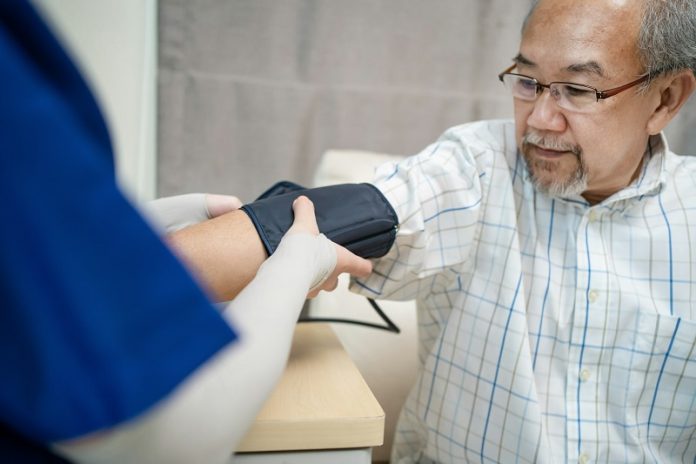
High blood pressure, also known as hypertension, is one of the most common health problems worldwide.
Many people know it can lead to heart disease or stroke, but fewer realize that it can also cause serious damage to the kidneys. In fact, high blood pressure is one of the leading causes of kidney failure.
The kidneys have tiny blood vessels that act like filters, removing waste and extra fluid from the blood. When blood pressure is too high, it puts extra force on these delicate vessels. Over time, this pressure can cause the vessels to narrow, weaken, or even scar. When this happens, the kidneys can’t filter blood properly, and waste starts to build up in the body.
Research shows that the damage from high blood pressure often happens slowly over many years. A study published in the New England Journal of Medicine found that people with poorly controlled high blood pressure were much more likely to develop chronic kidney disease (CKD) and eventually reach kidney failure, also called end-stage renal disease.
Another large study by the National Institutes of Health confirmed that people with high blood pressure have a significantly higher risk of losing kidney function, especially if they also have diabetes.
The early stages of kidney damage often don’t have any symptoms. That’s why high blood pressure is sometimes called a “silent killer.” A person may feel fine while their kidneys are slowly being damaged. By the time symptoms like fatigue, swelling in the legs, or changes in urination appear, the damage may already be serious.
The good news is that controlling high blood pressure can help protect the kidneys. Doctors often recommend a combination of lifestyle changes and medications.
Eating a low-salt diet, getting regular exercise, avoiding tobacco, limiting alcohol, and reducing stress all help keep blood pressure in a healthy range. Some people also need medications like ACE inhibitors or ARBs, which not only lower blood pressure but also help protect kidney function.
It’s also important to get regular checkups. A simple blood test can measure how well your kidneys are working, and a urine test can check for protein, which can be an early sign of kidney damage. Catching the problem early gives people the best chance of slowing or stopping further harm.
In more advanced cases, where the kidneys are badly damaged, a person may need dialysis or a kidney transplant to survive. That’s why prevention and early treatment are so important. Research continues to show that the earlier people get their blood pressure under control, the better their long-term kidney health will be.
In summary, high blood pressure doesn’t just affect the heart—it can quietly and seriously harm the kidneys, too. But with the right care and attention, it’s possible to protect your kidneys and live a healthier life.
If you care about high blood pressure, please read studies that early time-restricted eating could help improve blood pressure, and natural coconut sugar could help reduce blood pressure and artery stiffness.
For more health information, please see recent studies about added sugar in your diet linked to higher blood pressure, and results showing vitamin D could improve blood pressure in people with diabetes.
Copyright © 2025 Knowridge Science Report. All rights reserved.



